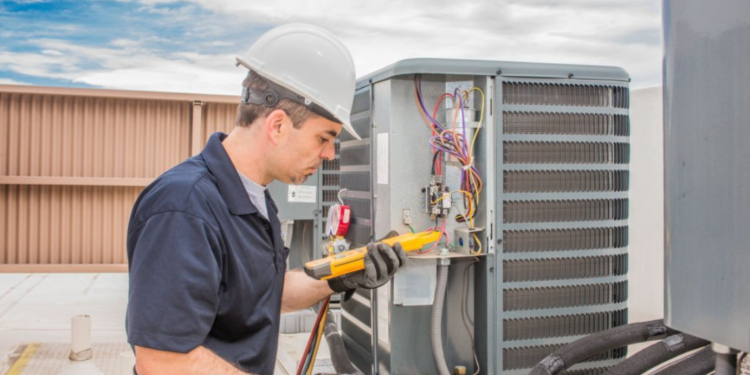When summer comes around, we all seek relief from the blazing heat. However, if your air conditioner breaks down, you’ll need to know about air conditioner repair. Similarly, if you’re thinking of getting a new unit, understanding the cost to install an air conditioner is crucial. So, let’s dive in.
Air Conditioner Repair: What Goes Wrong?
Air conditioners, like any other machines, can face issues. These problems can be minor, like a blocked filter, or major, requiring expert attention. Regular maintenance often keeps troubles at bay, but sometimes, breakdowns happen.
Signs Your Air Conditioner Needs Repair:
The unit doesn’t turn on or makes unusual sounds.
It doesn’t cool the room efficiently.
There’s water leakage around the system.
You notice an increase in your electricity bill without a clear reason.
If any of these sound familiar, it’s probably time for a check-up. This article offers in-depth insights into common AC problems.
Cost to Install an Air Conditioner: Factors to Consider
When looking into the cost to install an air conditioner, many variables play a role. It’s not just about buying the unit; the installation charges can sometimes surprise you.
Type of Air Conditioner:
Different models come with different price tags. For example, window units are generally more affordable than central air conditioners. Before making a choice, think about your needs and budget.
Size of Your Home:
The bigger the area, the more powerful (and expensive) your air conditioner needs to be. It’s vital to get the right size to ensure efficient cooling.
Installation Complexity:
A straightforward install will cost less than one that requires additional work, like duct modifications. Always get a quote beforehand to avoid unexpected expenses.
Additional Components:
Sometimes, extra parts or enhancements, such as air purifiers or humidifiers, can add to the overall cost.
Tips for Maintaining Your Air Conditioner
Maintaining your air conditioner isn’t just about ensuring comfort during the hotter months; it’s also about saving money. A well-maintained unit runs efficiently, uses less electricity, and reduces the likelihood of unexpected repair costs.
Regular Cleaning is Key
Dust and debris can easily accumulate in your AC system, particularly in the filters. Therefore:
Clean or Replace Filters: Most experts recommend checking filters monthly. If they look dirty, clean them or replace them. This simple step can improve efficiency significantly.
Clear the Area Around Your Outdoor Unit: Ensure there are no obstructions like plants or debris. It needs ample space to function effectively.
Schedule Annual Professional Check-ups
While basic maintenance can be done by homeowners, some tasks require expert hands. A professional can check coolant levels, inspect electrical components, and ensure there are no potential issues lurking.
Keep an Eye on the Thermostat
Modern thermostats, especially smart ones, can help you optimize AC usage, keeping your home comfortable without wasting energy.
Watch Out for Unusual Noises or Smells
If your air conditioner starts making strange noises or emits odd smells, it’s a sign that something might be amiss. Address these signs early to avoid larger, more costly problems down the line.
The Environmental Impact and Energy Efficiency
While air conditioners are a blessing in the scorching heat, it’s essential to remember the environmental impact. Opting for energy-efficient models or those with environmentally friendly refrigerants can make a huge difference.
Conclusion
Understanding air conditioner repair and the factors affecting the cost to install an air conditioner is invaluable. Whether you’re facing issues with your current unit or planning to install a new one, being informed helps you make better decisions. Always prioritize regular maintenance to ensure your AC runs efficiently and lasts longer.
FAQs
1. How often should I get my air conditioner serviced?
Most experts recommend servicing your AC unit once a year, ideally before summer starts.
2. Can I handle minor air conditioner repairs myself?
While small tasks like cleaning filters can be DIY, it’s safer to get a professional for more complex issues.
3. How long does it take to install an air conditioner?
A standard installation usually takes 4-8 hours, but it can vary based on the complexity.
4. What’s the lifespan of an average air conditioner?
With regular maintenance, most air conditioners last 12-15 years.
5. Does regular maintenance reduce repair costs?
Yes! Preventative maintenance often spots issues before they become expensive problems.



